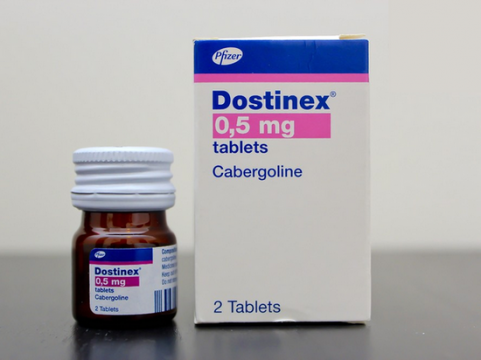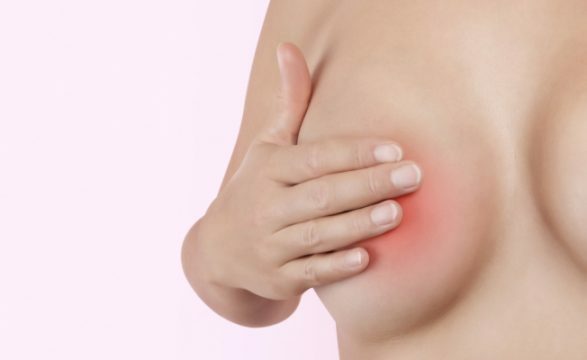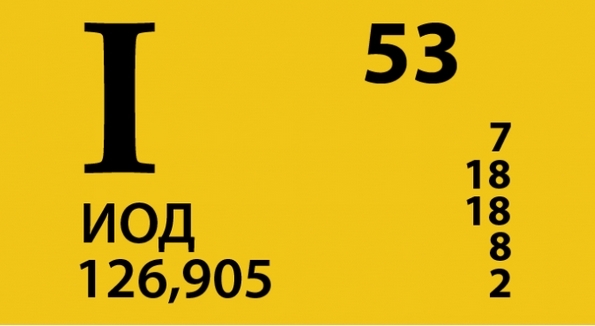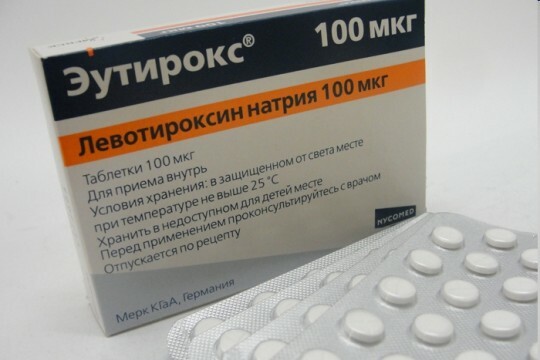Dostinex is a hormonal drug based on ergot alkaloids. It is designed to reduce the synthesis of prolactin - the hormone responsible for the excretion of breast milk. The mechanism of action of this drug is based on the fact that it binds to receptors in the pituitary, sensitive to dopamine. Normally, dopamine inhibits the synthesis of prolactin, the same effect is achieved and dostinex. As a result of its administration, prolactin concentration in the blood gradually decreases( this effect depends on the dose of the drug).The time of its removal from the body is quite long, so when planning pregnancy doctors recommend to stop taking dostinex a month before the alleged conception and do not highly recommend this drug to pregnant women.
Indications for the use of dostinex:
- Hyperprolactinemia and related disorders:
- dysmenorrhea and amenorrhea( menstrual irregularity or no menstruation),
- galactorrhea - milk excretion outside the postpartum period,
- habitual miscarriage in the presence of hyperprolactinemia.
- Necessity of interruption of lactation.
The drug has a high selectivity, therefore, when the dosage is observed, it has no side effects.
Dostinex in nursing mothers

Receiving dostinex during lactation causes a gradual decrease in the amount of milk, and then a complete cessation of its secretion. The reasons for its appointment and the cessation of lactation may be several:
- Taking medications, which are contraindicated in breastfeeding.
- Presence of infections that can be transmitted from mother to child when breastfeeding.
- Diseases of the mammary glands( mastitis, skin diseases in the nipple, breast tumor).
- Impossibility of self-termination of lactation and the need to wean the baby from the breast.
There is no evidence that dostinex is excreted in milk and can cause harm to the baby's health, but nevertheless, doctors and pharmacists recommend stopping breast-feeding from the first day of taking it. In addition, most of the indications for the use of dostinex in itself excludes breastfeeding. But lactation on the background of dostinex does not stop immediately, usually before this takes two to three weeks, therefore, there is a period of time during which the woman still has milk, and it is no longer possible to feed the child to them. There is a question - whether it is necessary to express this milk, or it "will burn" itself?
Why do you need to express milk?
Pediatricians and gynecologists recommend the expressing of breast milk in cases where it is formed more than the baby eats, or when the woman can not feed it at the frequency with which it is needed( for example, the mother early went to work and can not take the childwith myself).In all these cases, there is a danger that "extra" milk will cause lactostasis( milk stagnation) and mastitis. Express milk after feeding or at a time when a fresh serving of milk has been formed, if feeding is not possible at this time. If a woman has a disease in which she can not breast-feed, then express the milk every time instead of feeding, and the baby is completely transferred to the artificial feeding.
Nevertheless, the emptying of the breast stimulates the synthesis of prolactin, that is, the more a woman feeds or decant milk, the more it can form, therefore, in the treatment of galactorrhea caused by hyperprolactinemia, it is not recommended to express milk. As for the need for pumping after interruption of lactation, against the background of dostinex, the opinions of the doctors differ - some recommend pumping to not cause mastitis, others, on the contrary, are not recommended to stop lactation more quickly, others require milk to be expressed, but not completely. Obviously, the decision on whether to express milk should be taken individually, depending on the amount of milk, the age of the child, the reason why the woman decided to interrupt lactation.
Mastitis

Mastitis is a bacterial inflammation of the mammary glands. The cause of mastitis are conditionally pathogenic bacteria( that is, not causing diseases in a healthy person).Most often this is a golden staphylococcus, which normally lives on the skin and mucous membranes. Mastitis often develops in women after childbirth( especially in primiparas) against the backdrop of milk stagnation( lactostasis) and common diseases( including common cold) with minor injuries of the breast, which are the gateway to infection.
Symptoms of mastitis:
- Strain( "engorgement") of the breast, most often in the nipple. This is the earliest symptom to which attention should be paid.
- Redness and pain in the affected area, to the touch it becomes hot.
- In more severe cases - increased body temperature, deterioration of well-being, headaches.
Mastitis can lead to severe consequences - abscess and phlegmon of the breast, when purulent melting of its tissues occurs, as well as sepsis, which develops rapidly in nursing mothers, and is treated much more difficultly than at other times.
For the treatment of mastitis, antibiotics, which act on Staphylococcus aureus, are used, but since another infection may also join, a bacteriological analysis of the discharge from the gland is necessarily done. Some pediatricians believe that in the initial stage, when there is only engorgement of the glands, and there is no inflammation yet, it is possible and necessary to breastfeed, this prevents the further development of the process. Nevertheless, when there are symptoms of inflammation of the breast( pain and redness, sometimes swelling and local fever), lactation must be interrupted. For this purpose, appoint dostineks. Milk at the same time must express, as its stagnation only aggravates the morbid state. After the inflammation has subsided and treatment is complete, lactation can be restored.
How to restore lactation?

If a woman was forced to stop breastfeeding her baby for the period of treatment, and then decided to return to breastfeeding, the question arises - how to get the milk back and whether it should be done?
If the mother was sick with mastitis and successfully healed it, and the child is less than half a year, it makes sense to restore lactation, because breast milk is an ideal food for the baby, besides, breastfeeding creates a deep psychological connection between the mother and the child. To restore lactation it is necessary:
- Eliminate the reason that breastfeeding had to be interrupted.
- Stop receiving dostinex.
- Start to express and apply the baby to the breast, even empty - this stimulates the secretion of prolactin and, as a consequence, the production of milk. It is important to clarify that to restore lactation you must first put the baby to the chest, and only then give him a bottle with a mixture, otherwise the well-fed baby will not suck his breast.
- To develop a feeding regimen - every three or four hours, depending on the child's age;
- For faster restoration of lactation, preparations are used apilac, mlechin, herbal collection "mother's tea".
- If necessary - taking light sedatives - valerian, motherwort, herbal teas with mint, melissa, pion.
If, despite all efforts, it was not possible to return the milk, do not worry because the baby remains on artificial feeding - modern mixtures allow to provide a full meal for the baby. If a woman is planning another pregnancy in the future, then the action of dostinex by that time is guaranteed to end and lactation, most likely, will be normal.
If the child is older than six months, was on artificial feeding for more than two months, then restoration of lactation after taking dostinex is inappropriate, although it is still possible to return the milk. In the presence of chronic diseases, in which you can not breast-feed, lactation is interrupted even in the hospital, since it is possible to infect the infection with breast milk into the baby's body.
The use of dostinex and its analogues - drugs that suppress lactation, has its indications and contraindications and must be controlled by the attending physician. And, since it is not recommended to breast-feed a child while taking these medications, it is necessary to decide whether to express the milk.



